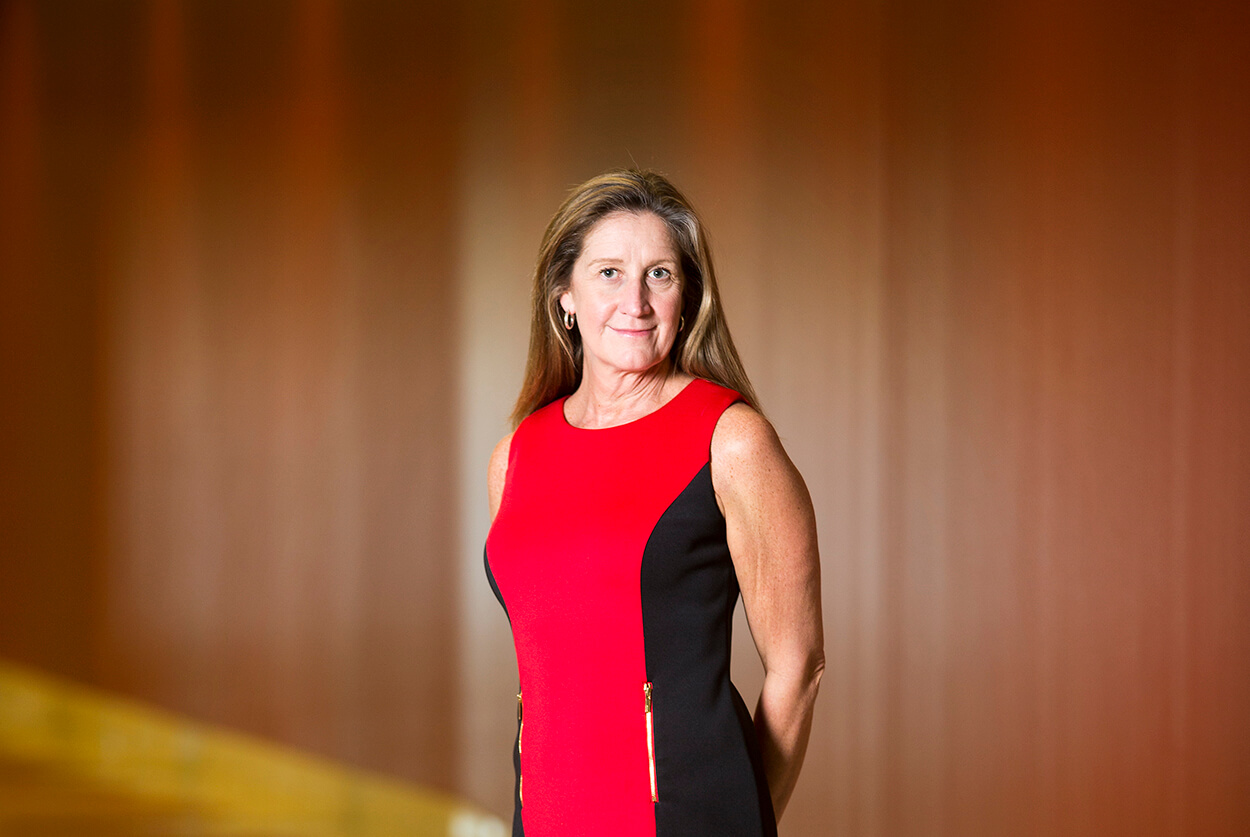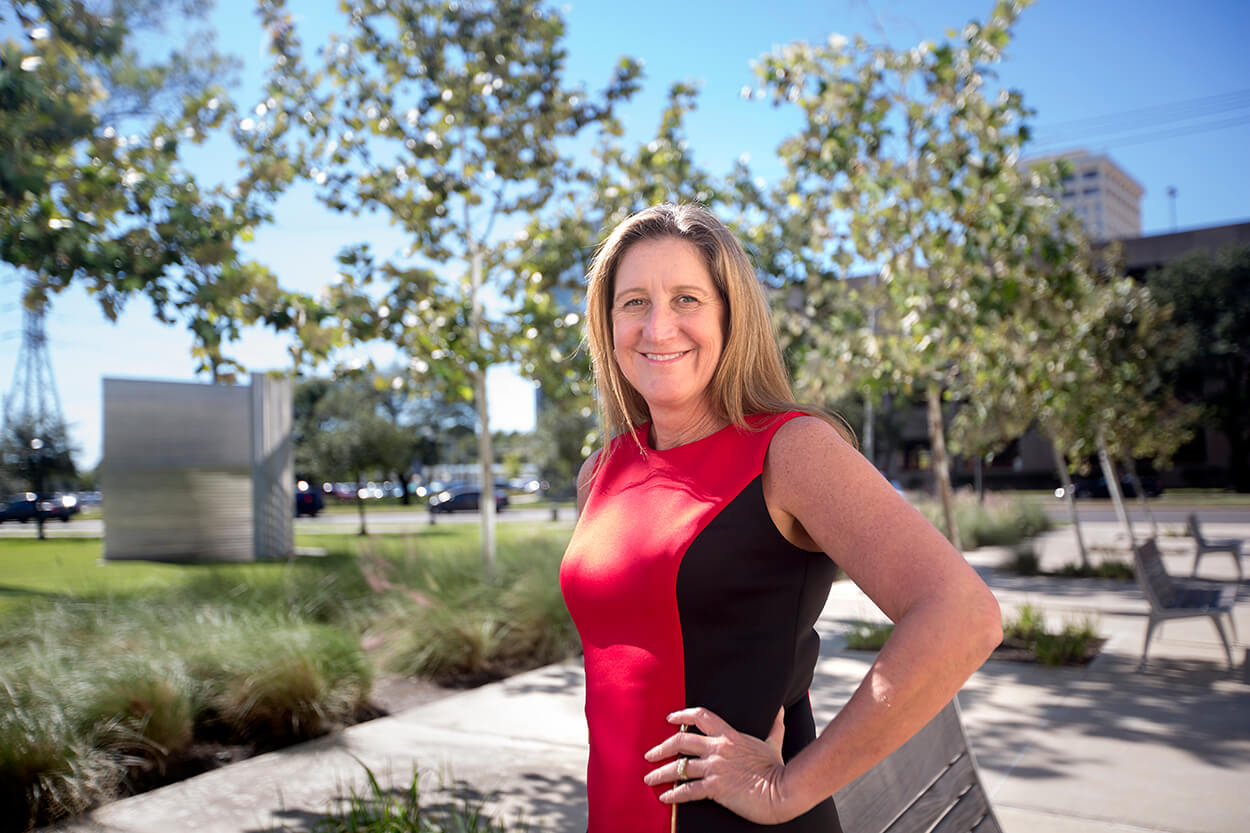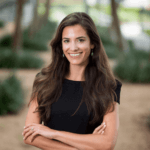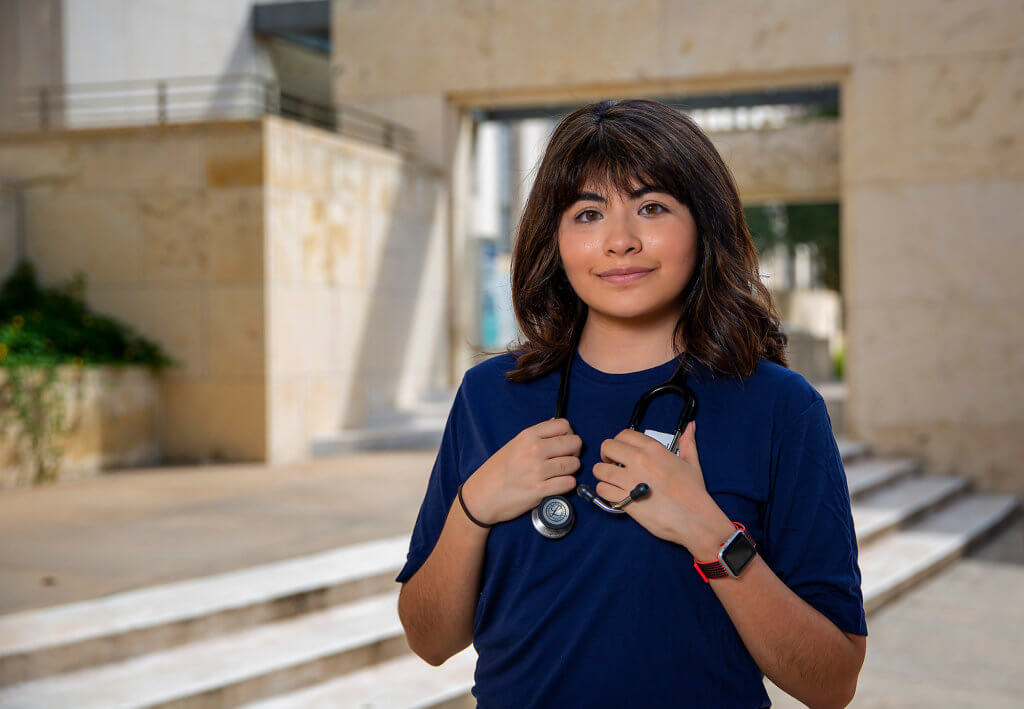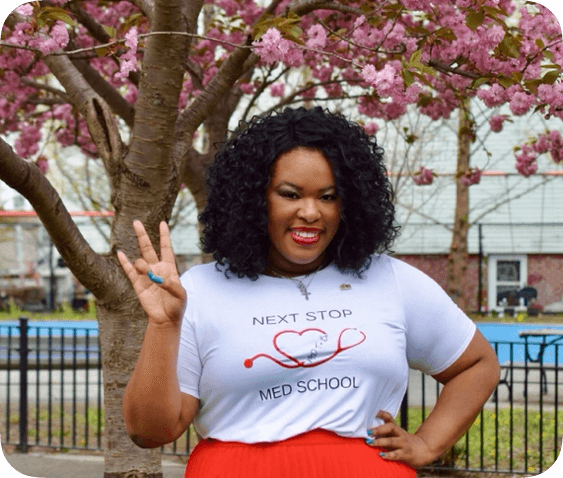Paule Anne Lewis brings business acumen to new UH medical school focused on primary care
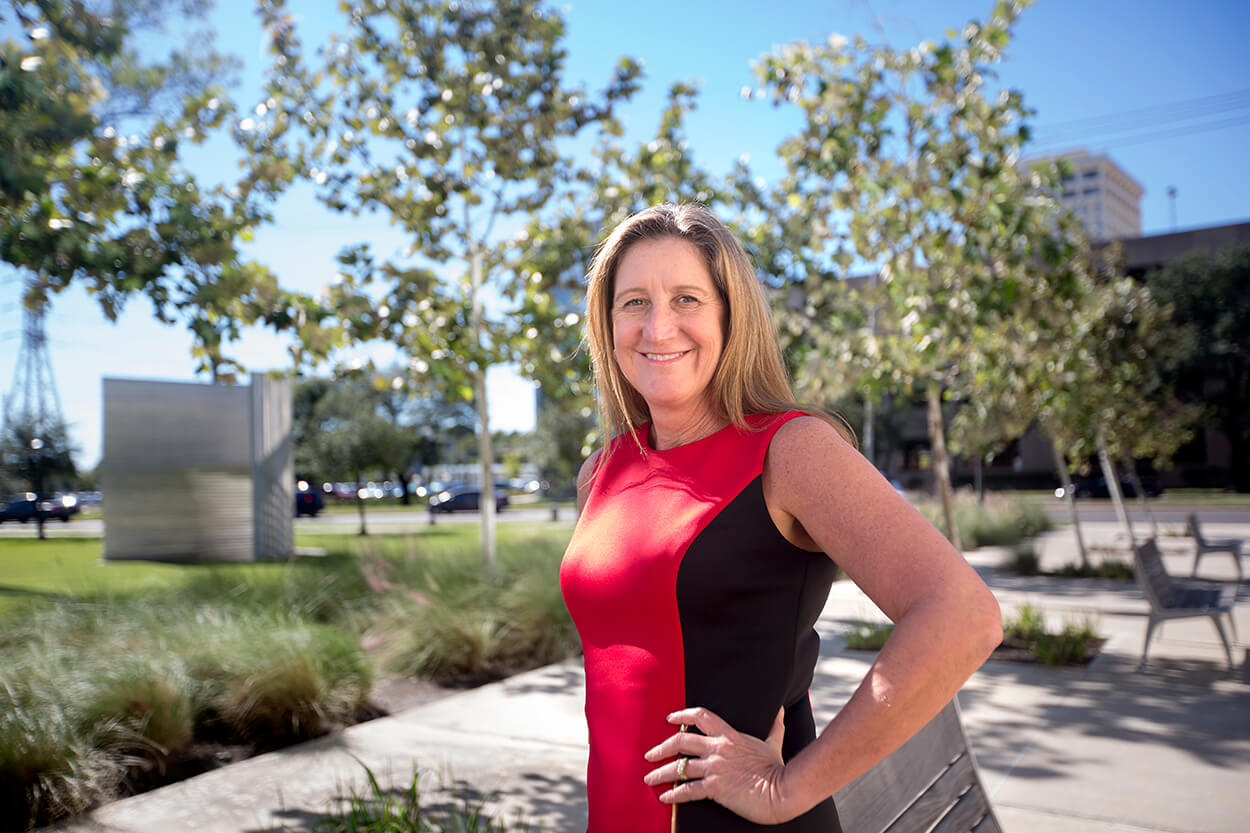
Paule Anne Lewis has spent many years helping the poor and uninsured gain access to health care. Last summer, she accepted a position as associate vice president of business operations at the University of Houston (UH) College of Medicine. She spoke with TMC News about how the forthcoming medical school is uniquely designed to serve the needs of Houston’s diverse population.
Q: Last summer, you stepped down as president and CEO of the San José Clinic—which provides affordable health services to the uninsured—to become the associate vice president of business operations at the University of Houston (UH) College of Medicine. What inspired you to make that change?
A: It wasn’t as difficult a decision as you would think—as even I would have thought—based on my passion for the mission of San José Clinic. It wasn’t an easy job, but it was always very fulfilling to see the fruits of my labor. That’s not something you get every day, especially in health care on the administrative side.
First and foremost, it was the mission of the College of Medicine. The fact that UH has committed to having the College of Medicine really focus on two of the most pressing issues we have in our state and also locally—the number of primary care physicians we have practicing and access to health care for the uninsured.
Another reason was Dr. Stephen Spann. They could not have picked a more perfect dean to lead this charge. He is committed to the uninsured and the underinsured population not only here, but across the country and internationally.
And, I am a native Houstonian. I was born down the street at St. Joe’s [St. Joseph Medical Center] and I have lived here my entire life. Who would pass up an opportunity to build a new medical school with such an incredible mission that is going to have such a long-term, really important impact on the community in their hometown? It was kind of a no-brainer.
Q: Why did you decide to enter health care administration?
A: The first job I ever had was in high school—I didn’t wait tables or work retail—I worked at UTMB in Galveston. I lived there for a little while with my folks. It is kind of weird that it was my high school job working in hospital finance.
I had my daughter when I was 15. There was never any question that I needed to work. I lived at home and I had an incredible support system, but I had to work, so my life in high school, college and my young adult years was very different than the lives of my peers. I learned a lot and there is no doubt that there was a foundation that was set during those early years for me.
Q: Your work experience intersects with two major issues of the day: immigration and health care. What did you learn about treating underinsured, uninsured and undocumented individuals at San José Clinic that will help you in your new role running business operations at UH College of Medicine?
A: Compassion. I never thought when I was getting an accounting degree or doing my master’s work or staying in health care all this time that at some point I would morph into this advocate for individuals who have no access to quality health care.
Q: What is going on behind the scenes now to prepare for the first class of students, who are scheduled to start in August 2020?
A: We have the majority of our senior level faculty, our chairs and our executive deans on board and we are starting to get some administrative support. We are working on our application for accreditation—within that we are building a curriculum, building the course, recruiting faculty and recruiting staff.
We are also learning how we can incorporate other colleges across the University of Houston into our curriculum so that we have a really unique learning experience for our students. We are working to build our clinical partners across the city because a lot of our students will be training out in the community. As you can see, we don’t have a hospital here. We will have a clinic downstairs—a federally qualified health clinic here on campus to serve the university and the surrounding neighborhood, Third Ward. Our students will be rotating and learning through there, but they are going to be in all of these wonderful community clinics with these really diverse populations with diverse faculty. We are building those partnerships now.
Q: How does the city’s diversity impact the role of the College of Medicine?
A: The diversity of Houston is the reason why the College of Medicine is here. We are here to serve that diverse population. A big key to that is going to be the work that we do here in the Third Ward.
We have a very unique model, a household-centered care model. We will take interdisciplinary teams from all of these great health-related colleges on campus and those teams will go out to households and they will be assigned homes and families in the Third Ward and will follow them and be able to make a longitudinal impact on their health.
Q: Do you plan to have UH medical students train at the San José Clinic?
A: I would absolutely hope so. San José Clinic has over 40 different academic programs that rotate through there and they have been training all different levels of health workers for over 90 years. I think it would be a perfect fit, especially with what we want to include for the College of Medicine in our curriculum about integrated care, integrated primary care, the full continuum of care and really treating this specific population—the underserved people living in poverty.
Q: The new medical school intends for at least 50 percent of every graduating class to specialize in primary care. Texas ranks 47th in the country in the ratio of primary care doctors to residents. Why are primary care physicians so important to this region and to the nation?
A: We hope to have at least 50 percent in primary care and primary care specialties—that includes family physicians, pediatricians, OB/GYN, behavioral health. … There are shortages to all of those primary care access points.
Keeping our students in Houston and Texas is so important because the cost of care is so high when you look at the utilization of specialists— people using emergency rooms as their primary care provider instead of going to a primary care provider because there is no access. Access is the reason we need primary care physicians.
Q: The UH College of Medicine has received several donations, including an anonymous $3 million grant that will pay full tuition for the the first 30 students. How do these gifts influence the financial health of a new medical school?
A: One of the reasons students don’t go into primary care is because the pay is lower than it is for specialties. Taking that debt burden off of the student or reducing it as much as possible really helps encourage them to go into those primary care areas.
We have also received some wonderful gifts from our health care partners, Humana and anonymous donors for our start-up costs that will help us reach our $40 million goal.
Q: If you could change one thing about the state of health care in the Unites States, what would it be?
A: The payment system. I think that the way that all health care providers are reimbursed really needs to be changed. If any health care provider is reimbursed, paid and rewarded on volume, we will never get our cost under control.
Q: You’re an avid runner and have participated in the Aramco Houston Half Marathon for several years. What made you want to get involved?
A: My husband is a marathon runner. He has done [the Boston Marathon] three times and I would run with him, but I’m really an avid swimmer. When I was at San José Clinic, it was then a Run for a Reason charity for the Chevron Houston Marathon and Aramco Houston Half Marathon, so I did the 5K. And then I thought, ‘Here we are recruiting people to do this, I’m out there asking people to run this race and raise money, I need to do this race myself. I need to lead from the front—if not from the front of the pack then from the front of fundraising.’ You should never ask someone to do something you are not willing to do yourself, so that was really the reason.
Q: How can Houstonians stay healthy and active?
A: Swim, bike, whatever, you can play with your kids in the yard, go on walks, do a dance class. I do believe there are other things that are equally important, like a healthy environment and diet, but I think they are all combined.
Especially in Houston, from what I have seen, we are a little behind the eight ball in our access. People talk about food deserts, but not many people talk about exercise deserts. Some neighborhoods have stray dogs, they don’t have side walks, they have high crime, there is no street lighting, they don’t have a park. … Also, we have a lot of urban sprawl and it is hard to get out and do stuff when you don’t get home from work until 9 p.m. because of your commute time. We have made strides in some areas—some of our urban parks, the bikeshare program—I just love that. We are getting there in the city, but we have to do that in our neighborhoods, especially our neighborhoods that have, for whatever reason, been neglected by the city. You don’t have to belong to a gym or run at 5 a.m. every morning, but having an active lifestyle comes in many ways, shapes and forms and I think you just have to find that. And I think there needs to be an even stronger commitment from the city to make every neighborhood a safe place to be able to go for a walk after dinner.
Paule Anne Lewis was interviewed by Pulse staff writer Britni McAshan. This conversation was edited for clarity and length.

